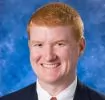On January 19, 2010, the U.S. Department of Justice (DOJ) announced the arrest and indictment of 22 executives and employees of companies in the military and law enforcement products industry for allegedly engaging in a scheme to bribe foreign government officials in order to obtain and retain an African country's presidential guard business. Attorneys from DOJ's Criminal Fraud Section and an Assistant U.S. Attorney from the District of Columbia, working together with Washington-based FBI agents, brought 16 indictments against 22 individuals following an FBI undercover operation that represents the largest single investigation and prosecution, to date, of individuals in the history of DOJ's enforcement of the Foreign Corrupt Practices Act (FCPA). Twenty-one of the defendants were arrested while in Las Vegas to attend a trade show. The indictments, which do not identify the names of the companies involved, are significant for the government's use of undercover federal agents, marking the first time indictments have been unsealed where such investigative tactics were used to develop evidence in a large-scale foreign bribery investigation. The investigation focused on allegations of foreign bribery in the military and law enforcement products industry.
One of the indictments alleges that the defendants, including a vice president of a firearm manufacturer and a former Secret Service agent who had once been in charge of protecting the vice president, engaged in a scheme to pay bribes — described as "commissions" — to the minister of defense of an unnamed African country. The defendants allegedly agreed to pay a 20-percent commission to a "sales agent" who the defendants believed represented the minister of defense in order to win a portion of a $15 million contract to supply the country's presidential guard. In fact, there was no actual involvement from any minister of defense, and the sales agent was, in reality, an undercover FBI agent. Undercover meetings were held at restaurants and hotels in Washington, D.C., providing the prosecutors in Washington, D.C. with venue in indictments brought against out-of-state and overseas defendants. The defendants were told that half of the commission would be paid directly to the minister of defense and they also agreed to engage in a small test deal to show the minister of defense that he would receive the bribes. The indictments charge the defendants with conspiracy to violate the FCPA and engage in money laundering as well as substantive violations of the FCPA.
In connection with the FBI's undercover operation, approximately 150 FBI agents executed 14 search warrants in locations across the United States, including in Arkansas, California, Florida, Georgia, Kentucky, Pennsylvania, and Virginia. DOJ reported that the City of London Police also executed seven search warrants in connection with their own investigation of companies involved in the sting operation. Assistant Attorney General Lanny A. Breuer of the Criminal Division noted that the investigation is "the first large-scale use of undercover law enforcement techniques to uncover FCPA violations" and that from now on, "would-be FCPA violators should stop and ponder whether the person they are trying to bribe might really be a federal agent." Assistant Director Kevin Perkins of the FBI's Criminal Investigative Division reiterated this commitment to using undercover operations, stating that in "this era of global commerce, the FBI is committed to curbing corruption at home or overseas."
In a November 2009 speech, Assistant Attorney General Breuer said that although many FCPA cases "come to us through voluntary disclosures, which we certainly encourage and will appropriately reward, I want to be clear: the majority of our cases do not come from voluntary disclosures. They are the result of pro-active investigations." In the same speech, Breuer noted that the FBI squad dedicated to FCPA enforcement was "growing in size and in expertise." Assistant Director Perkins noted that 20 agents currently work on FCPA cases full-time (DOJ currently has 140 open FCPA investigations). With these indictments, the government confirmed it is willing to take aggressive action in investigating and prosecuting FCPA violations. As stated by U.S. Attorney Channing Phillips for the District of Columbia, these indictments "reflect the Department's commitment to aggressively investigate and prosecute those who try to advance their business through foreign bribery."
The use of undercover operations by the DOJ and FBI, a first for FCPA enforcement, continues the DOJ's recent uptick in enforcement of individuals for alleged FCPA violations. In the past, FCPA cases came about from allegations raised by whistleblowers, disgruntled employees, competitors, and, more recently, industry-targeted inquiries. These arrests highlight the willingness of the DOJ and the FBI to use more traditional law enforcement techniques to develop a case, rather than wait for disclosure by corporations. This case also highlights the amount of resources the government is willing to devote to investigating and prosecuting FCPA violations.
Follow the trends in FCPA enforcement on Foley's Web site dedicated to this topic: http://www.FCPAenforcement.com (http://www.FCPAenforcement.com).
The content of this article is intended to provide a general guide to the subject matter. Specialist advice should be sought about your specific circumstances.







